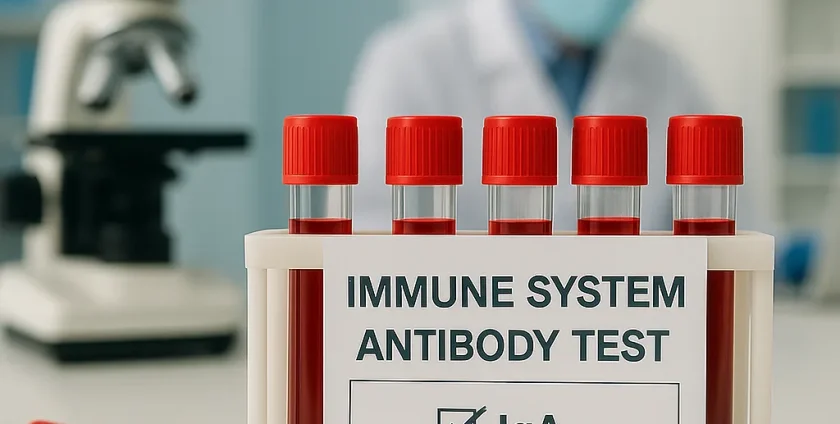
The immune system plays a vital role in defending the body against infections and pathogens. However, in some cases, it mistakenly targets the body’s own tissues, leading to autoimmunity. Diagnosing autoimmune diseases relies heavily on analyzing immunoglobulins and antibodies, which are critical markers in blood test results.
Immunoglobulins, also known as antibodies, are proteins produced by B lymphocytes to identify and neutralize harmful pathogens. There are several classes of immunoglobulins, including IgG, IgA, IgM, IgE, and IgD, each with distinct roles in the immune system. For instance, IgG provides long-term immunity and can cross the placenta to protect the fetus, while IgA is primarily found in secretions like mucus, offering localized protection. IgM, on the other hand, is often the first antibody to appear during the acute phase of an infection.
In autoimmune disease diagnostics, antinuclear antibodies (ANA) are particularly important. Elevated ANA levels can indicate autoimmune activity, commonly associated with conditions like systemic lupus erythematosus (SLE). However, a positive ANA test alone is insufficient for a definitive diagnosis, as additional blood test interpretations, imaging studies, and clinical evaluations are often required. Another example is anti-TPO antibodies, which are linked to autoimmune thyroid conditions like Hashimoto’s thyroiditis and Graves’ disease.
Anti-CCP antibodies are a key marker for diagnosing rheumatoid arthritis (RA), while anti-dsDNA antibodies are used to confirm lupus activity. These specialized blood tests allow for the early detection of autoimmune diseases, which is crucial for initiating appropriate treatment and minimizing organ damage.
In addition to disease-specific antibodies, general immunoglobulin levels are also significant. Low levels may indicate an immunodeficiency condition, such as hypogammaglobulinemia, while elevated levels may be associated with chronic infections, liver diseases, or lymphomas. Understanding these variations is vital for describing blood test results accurately and guiding further diagnostics.
On old.itsmybloodtest.com, you can find practical advice on preparing for immunological tests and the significance of various antibodies. Early autoimmune diagnostics enable timely treatment with options like glucocorticoids or immunosuppressants, which can halt disease progression and improve patient quality of life.
In conclusion, analyzing immunoglobulins and antibodies is essential for identifying autoimmune diseases. Blood test results, including markers like ANA, anti-TPO, and anti-CCP, provide a detailed description of immune system activity and help detect disorders early. Accurate blood test interpretation supports effective treatment, reducing complications and enhancing patient outcomes.